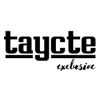The GMO labeling domino effect shows no signs of slowing.
In less than a week, four major food companies have joined Campbell in the GMO labeling club. General Mills' GMO labeling announcement last Friday was followed by Mars', Kellogg's, and ConAgra's announcements. Mars quietly released a statement on its website last Friday, a spokesperson told The Wall Street Journal, though the announcement didn't catch on until Monday. Kellogg North America president Paul Norman confirmed Kellogg's announcement in a statement to Food Dive. ConAgra's announcement went live late Tuesday.
"General Mills is not the only company positioned to deal with (Vermont's) Act 120, it's just among the first willing to put its cards on the table," David Wallace, a litigation partner in the New York office of Herbert Smith Freehills, told Food Dive.
Now that more manufacturers are putting cards — well, labels — on the table, questions arise as to how these companies were impacted by and/or will impact GMO labeling legislation in the Senate. Because Vermont's GMO labeling law is set to go into effect in just over three months, more GMO labeling-related announcements are expected.
Did the Senate's failed bill come into play?
Although none of the companies explicitly related their announcements to last week's failed Senate bill, which would have furthered a national voluntary GMO labeling policy, that bill was one of many falling dominos.
"I think any major companies making this decision are accepting that whether the voluntary labeling (bill) passes or fails, consumers have spoken," Alan Rownan, ethical labels analyst at Euromonitor International, told Food Dive. "Companies recognize that this is an opportunity to show willingness to compromise while they still have leverage and without their hand being forced by impending legislation."

These companies may have already been planning to implement GMO labeling whether the voluntary labeling bill moved forward and passed. Either way, a labeling overhaul would need to begin sooner rather than later per the logistics and timeline of label management.
"New packaging is not rolled out overnight, and July — when Vermont's labeling law is scheduled to take effect, absent judicial injunction — is just around the corner," said Wallace. "Might as well be tomorrow as things of that nature go."

The delicate dynamic of company labeling and national legislation
Company labeling announcements and progress toward a national labeling standard will undoubtedly impact each other. At this point, if the Senate does pass another version of voluntary labeling legislation, companies that made GMO labeling announcements are unlikely to take those commitments back.
Future voluntary legislation could include a provision requiring a percentage of companies to voluntarily label products. Such a move could prevent mandatory labeling from going into effect. If so, these four major companies would position the industry closer to that minimum percentage.
If mandatory GMO labeling legislation makes it out of committee and passes the Senate and House, these companies can tout that they made the choice to label. They'll be ahead of the game in the minds of consumers and revered for voluntary transparency.
But will that commitment to transparency have a positive or negative impact on sales? Being transparent in this case means telling consumers that products contain GMOs.
Yes, more than 90% of consumers want GMOs labeled. But once they are labeled, consumers, especially the most health-conscious, may come to see the products and brands in a different light. And therein lies the risk food and beverage manufacturers take when it comes to GMO labeling decisions — and why more companies haven't made this decision already.
Labeling GMOs doesn't necessarily mean a company willingly sacrifices sales in exchange for transparency. Last year, one study showed that GMO labels would not necessarily deter consumers. The companies that recognize this may be taking a risk with GMO labeling, but it is a calculated one.
"In the absence of legislative guidance on the subject, market leaders must necessarily take matters into their own hands and do what they do: lead, before the competition does," said Wallace.
How these companies view a national standard
A notable difference between these announcements is the varying stances on a national GMO labeling standard. Campbell stood apart from its peers by voicing support for a mandatory labeling policy.
In its original announcement, General Mills emphasized the need for a national standard without outright supporting either side. A General Mills spokesperson later told Politico, "We stand firmly with [the Grocery Manufacturers Association] working on this issue in Washington."
In its statement, Mars did not mention a national labeling standard. Norman said in his statement that Kellogg urges Congress to pass a "uniform, federal solution." ConAgra confirmed it "supports using a variety of options for disclosure of GMOs."
All of the companies with recent announcements did call out Vermont's law as an impetus for labeling GMOs across portfolios nationwide. Having a special label and/or distribution system for one individual state would be costly for companies and consumers, industry players have said.
The Corn Refiners Association released a study last month that said Vermont's labeling law would add $1,050 to consumers' annual grocery bill. That study has since been refuted — Consumers Union commissioned analysis of existing studies of labeling costs and found that additional annual amount to be closer to $2.30 per person.
Campbell and General Mills said that they would not pass on the costs of changing labels to consumers.
Companies may have 'staked the ground'
Among the early adopters are four of the country's top 15 food and beverage players. According to Food Processing's Top 100 2015 list, ConAgra ranks No. 7, General Mills, No. 10; Mars, No. 11; and Kellogg, No. 13, with Campbell coming in at No. 25.
The question is which companies will follow and how long they'll wait before Vermont's law threatens to take effect without Congress intervening with a uniform national policy.
"Like consumers, business plays follow-the-leader," said Wallace. "General Mills and Campbell Soup have staked the ground."
The companies that have made announcements have been namely known for food products. But beverage companies also use GMO corn, soybeans, and sugar beets in their products, from soda to soy milk.
Soda makers already face backlash from consumers and are struggling to maintain sales. These manufacturers may be hesitant to include a GMO label that might add to concerns about sugar content and artificial sweeteners. Coca-Cola ($5.04 million) and PepsiCo ($3.23 million) were the biggest spenders in fighting mandatory GMO labeling legislation during the first half of 2015, according to an analysis of lobbying expenditures by the Environmental Working Group.
A multi-faceted company like PepsiCo has to consider GMO labels on two sides of its portfolio: beverages, including soda, and Frito-Lay snacks. Both segments frequently use corn or a corn byproduct as a key ingredient. PepsiCo's Tropicana Pure Premium orange juice and four other Tropicana varieties were set to be labeled with the Non-GMO Project seal early this year, reports the New York Times.
"General Mills (has) taken a bold approach, and others may be slightly more prudent, exhibiting a reluctance to make such a significant change," said Rownan.
The recent announcements will put more pressure on legislators to change their minds and work through the current Senate stalemate — but how many more dominos must fall first?






















